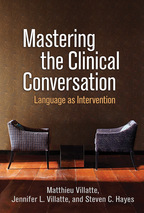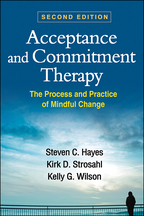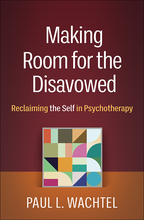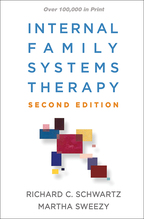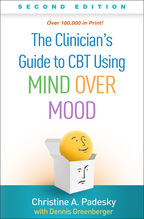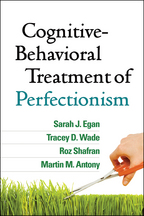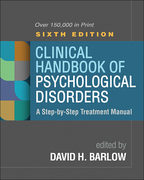Mastering the Clinical Conversation
Language as Intervention
Matthieu Villatte, Jennifer L. Villatte, and Steven C. Hayes
Paperbacke-bookprint + e-book
Paperback
orderSeptember 6, 2019
ISBN 9781462542161
Price: $45.00406 Pages
Size: 6" x 9"
Copyright Date: 2016
Sign up for emails on upcoming titles on Mindfulness (with special discounts)!
“A work of breathtaking scope and ambition….It is well written, the language used flows well, and the therapy dialogues are convincing, authentic, and warm—and resonate with my experience of therapy….At every turn I found myself immersed in the topic, trying to unpick many of the clinical interventions and training practices that I have come to know through tested experience and to rebuild them from a bottom-up understanding of why they are effective in influencing the listener….Some highlights of the book are its richness, depth, complexity, and inclusivity….Mastering the Clinical Conversationrepresents both a waypoint on a scientific and clinical journey and a compass heading for future progress.”

—PsycCRITIQUES
“Beautifully written, this book imparts a deep understanding of language's relationship to psychopathology and its effective use in psychotherapy. The theoretical presentation is exceptionally rich and the many examples of clinical application are particularly informative. Chapters address the fundamental tasks of therapy, from conducting functional assessments to building the client's sense of self, fostering meaning and motivation, and enriching the therapeutic relationship. A 'must read' for psychotherapists and students.”

—Michelle G. Craske, PhD, Department of Psychology, University of California, Los Angeles
“A fascinating, very accessible account of RFT and its application to psychotherapy practice. The book offers a gorgeous balance of conceptual thinking and practical applications. It is a mind-expanding resource for psychotherapists of all orientations and levels of experience.”

—Jacqueline B. Persons, PhD, Director, Oakland Cognitive Behavior Therapy Center
“In this remarkable book, Villatte, Villatte, and Hayes bring to life the ways in which language and the use of symbols structure our experience. They explore how language shapes the therapeutic relationship and process, as well as clients' suffering, and how it can be a vehicle for igniting change. A cornerstone of this approach is RFT, beautifully articulated and described here. Clever, illuminating vignettes are sprinkled throughout. This book is a treasure trove of clinical wisdom with regard to the role of questioning, dialoguing, reflecting, and challenging in the therapy context. It is a gift to all psychotherapists.”

—Paul Gilbert, PhD, FBPsS, OBE, Centre for Compassion Research and Training, University of Derby, United Kingdom
“Villate, Villate, and Hayes recognize that the many, often wildly contrasting therapy approaches available today all rely on language as a major factor in therapeutic success. Using the theory of verbal behavior that underlies acceptance and commitment therapy this book provides ways for therapists of any stripe to use words to maximum effect. It offers a rich variety of examples that will make you a better practitioner, no matter what treatment approach you employ. This volume is a vital contribution to the increasingly important task of integrating the various approaches to psychotherapy to maximize their effectiveness.”

—Robert P. Cohen, PhD, Psychodynamic Therapy Clinic, University of Michigan Department of Psychiatry, and private practice, Ann Arbor, Michigan
—PsycCRITIQUES
“Beautifully written, this book imparts a deep understanding of language's relationship to psychopathology and its effective use in psychotherapy. The theoretical presentation is exceptionally rich and the many examples of clinical application are particularly informative. Chapters address the fundamental tasks of therapy, from conducting functional assessments to building the client's sense of self, fostering meaning and motivation, and enriching the therapeutic relationship. A 'must read' for psychotherapists and students.”
—Michelle G. Craske, PhD, Department of Psychology, University of California, Los Angeles
“A fascinating, very accessible account of RFT and its application to psychotherapy practice. The book offers a gorgeous balance of conceptual thinking and practical applications. It is a mind-expanding resource for psychotherapists of all orientations and levels of experience.”
—Jacqueline B. Persons, PhD, Director, Oakland Cognitive Behavior Therapy Center
“In this remarkable book, Villatte, Villatte, and Hayes bring to life the ways in which language and the use of symbols structure our experience. They explore how language shapes the therapeutic relationship and process, as well as clients' suffering, and how it can be a vehicle for igniting change. A cornerstone of this approach is RFT, beautifully articulated and described here. Clever, illuminating vignettes are sprinkled throughout. This book is a treasure trove of clinical wisdom with regard to the role of questioning, dialoguing, reflecting, and challenging in the therapy context. It is a gift to all psychotherapists.”
—Paul Gilbert, PhD, FBPsS, OBE, Centre for Compassion Research and Training, University of Derby, United Kingdom
“Villate, Villate, and Hayes recognize that the many, often wildly contrasting therapy approaches available today all rely on language as a major factor in therapeutic success. Using the theory of verbal behavior that underlies acceptance and commitment therapy this book provides ways for therapists of any stripe to use words to maximum effect. It offers a rich variety of examples that will make you a better practitioner, no matter what treatment approach you employ. This volume is a vital contribution to the increasingly important task of integrating the various approaches to psychotherapy to maximize their effectiveness.”
—Robert P. Cohen, PhD, Psychodynamic Therapy Clinic, University of Michigan Department of Psychiatry, and private practice, Ann Arbor, Michigan

